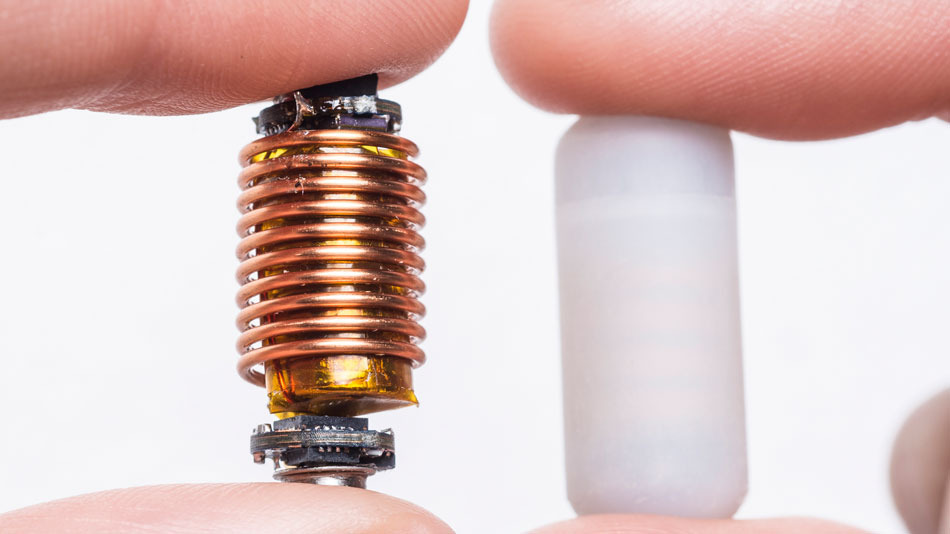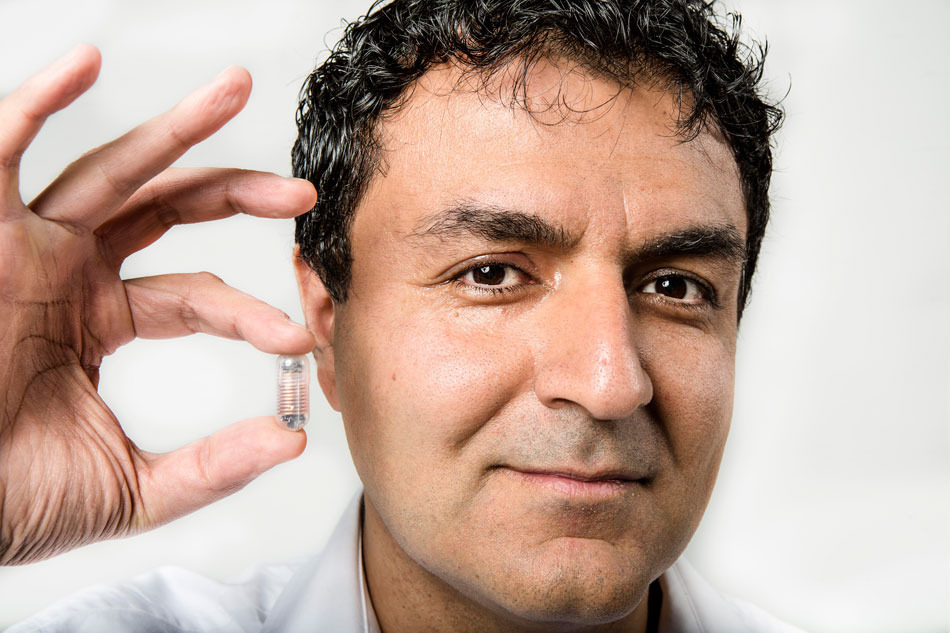Researchers at RMIT University in Australia have conducted the very first smart pill trials—measuring intestinal gases inside the body, and how fiber affects the gut.
In the past, gas and bloating have been found to be late symptoms of colon cancer. According to About Health, “[a]n obstruction caused by a tumor could lead to bloating and the trapping of gas within the colon.” A press release from RMIT University adds that: “[i]ntestinal gases have been linked to colon cancer, irritable bowel syndrome (IBS), and inflammatory bowel disease (IBD), but their role in health is poorly understood and there is currently no easy and reliable tool for detecting them inside the gut.”
Designed at Melbourne’s RMIT University, this new smart pill could help us learn more about the body’s production of gases—potentially even assisting us in customizing what we eat to minimize gas production in our bodies.

(Photo credit: RMIT University)
RMIT’s smart pill is an intricate piece of technology, with various capabilities and strategic designs:
- It collects data in the gut via a number of sensors, some off-the-shelf and some developed in the lab, which can measure the gas type and concentration.
- Its microprocessor sends the data to a transmitter, which then relays it to a receiver in a mobile device.
- It uses silver oxide batteries—as they are not lithium ion, they are safe to ingest—and can last for about four days.
Tests are currently underway to examine the impact of fiber on the gut. These animal tests have examined the impact of low and high-fiber diets on intestinal gases.

Professor Kourosh Kalantar-zade (Photo credit: RMIT University)
Lead investigator Professor Kourosh Kalantar-zadeh, from the Centre for Advanced Electronics and Sensors at RMIT, said the results reversed current assumptions about the effect of fiber on the gut.
“We found a low-fiber diet produced four times more hydrogen in the small intestine than a high-fiber diet,” Kalantar-zadeh said. “This was a complete surprise because hydrogen is produced through fermentation, so we naturally expected more fiber would equal more of this fermentation gas.
“The smart pills allow us to identify precisely where the gases are produced and help us understand the microbial activity in these areas—it’s the first step in demolishing the myths of food effects on our body and replacing those myths with hard facts.
“We hope this technology will in future enable researchers to design personalized diets or drugs that can efficiently target problem areas in the gut, to help the millions of people worldwide that are affected by digestive disorders and diseases.”
According to the findings of these trials, different levels of fiber in a diet affected both how much gas was produced and where it was concentrated in the gut—in the stomach, small intestine, or large intestine. Hopefully, these findings will offer new clues for the development of treatments for gut disorders.
Lead image photo credit: RMIT University.
Follow us on Twitter and Facebook for updates on the latest pharmaceutical and biopharmaceutical manufacturing news!




